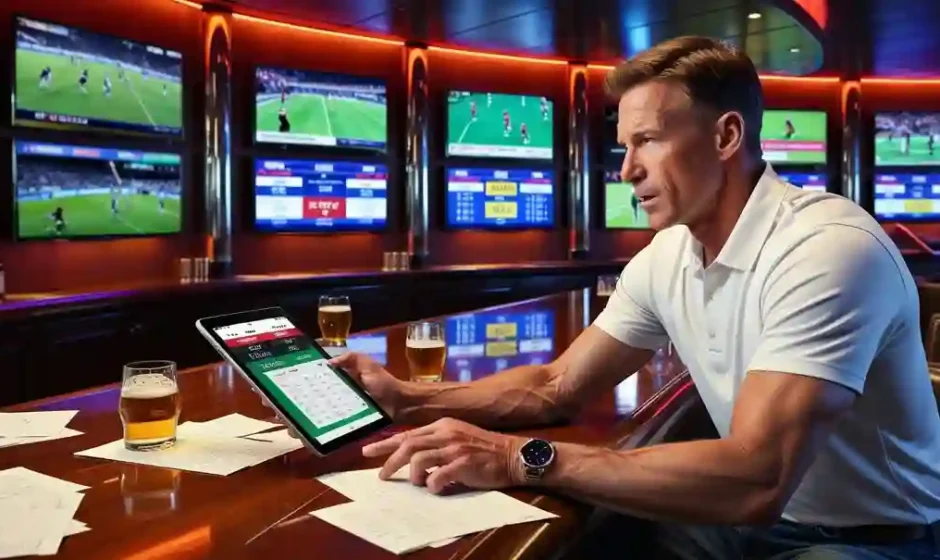In the modern age of sports, social media has become an indispensable tool that shapes fan engagement, drives narratives, and significantly influences sports betting decisions. The phenomenon known as “بت dynamics” illustrates how the popularity of athletes on social media platforms can directly affect betting behavior, odds, and the overall betting landscape. This article explores the intricate relationship between social media and sports betting, highlighting how digital interactions impact betting decisions and the strategies bettors can employ to navigate this evolving landscape.
The Power of Social Media in Sports
Social media platforms like Twitter, Instagram, TikTok, and Facebook have transformed how fans connect with athletes and their teams. Celebrities, including sports icons, utilize these platforms to share personal insights, training routines, and game-day experiences, creating a sense of intimacy and authenticity. This direct engagement fosters a strong emotional bond between fans and athletes, making celebrity athletes powerful influencers in the sports betting arena.
1. Building an Athlete’s Brand
Athletes today are not just players; they are brands. Their social media presence can significantly enhance their image and influence, which in turn affects how fans perceive them during betting scenarios. For example, a player who consistently shares motivational content or personal stories can cultivate a loyal following, resulting in heightened support during games. When such athletes compete, fans are often more inclined to bet in their favor, even when statistical analysis might suggest otherwise.
2. Instant Updates and Real-Time Information
One of the most significant advantages of social media is the immediacy of information. Athletes often provide updates on their physical condition, mindset, and game preparation through social media. This real-time access to information can be critical for bettors. A player tweeting about their confidence before a crucial match or providing updates about their recovery from an injury can sway public sentiment and lead to a surge in betting activity on that athlete’s team.
Social Media Narratives and Betting Trends
Media narratives can create compelling stories around athletes, impacting public perception and, subsequently, betting trends. A positive narrative can enhance a player’s perceived value, while a negative story can diminish it.
1. The Role of Public Perception
Public perception plays a crucial role in betting markets. If an athlete is portrayed positively in the media—whether through impressive performances or uplifting personal stories—bettors are more likely to place bets in their favor. Conversely, negative media coverage, such as a scandal or a slump in performance, can lead to a rapid decline in public support and betting activity.
2. Influencer Collaborations and Partnerships
In addition to traditional media narratives, collaborations with social media influencers can amplify athletes’ reach. When popular athletes team up with influencers for campaigns or endorsements, it not only broadens their audience but also shapes how fans perceive their skills and potential. As a result, bettors may be swayed by these campaigns, further influencing their betting decisions.
Social Media as a Betting Tool
Bettors are increasingly using social media to inform their decisions. Platforms offer a wealth of insights that can guide betting strategies.
1. Engaging with Fan Communities
Social media has fostered vibrant communities where fans and bettors can discuss games, share predictions, and analyze athletes’ performances. Engaging in these discussions can provide valuable insights that may not be readily available through traditional sports analysis. Bettors who actively participate in these communities can gain perspectives on upcoming games, understand fan sentiment, and identify potential betting opportunities.
2. Analyzing Trends and Sentiment
Social media platforms allow bettors to analyze trends and sentiment around specific athletes and teams. Tools and analytics can track mentions, hashtags, and engagement related to athletes, providing insights into how public sentiment is shifting. For instance, a surge in positive tweets about a quarterback’s performance leading up to a big game could indicate that the betting public is leaning heavily in their favor, prompting savvy bettors to consider their options carefully.
Managing Risks and Rewards
While social media can be a powerful tool for bettors, it is essential to manage the associated risks. Relying solely on social media can lead to impulsive betting decisions driven by hype rather than informed analysis.
1. Balancing Emotional Influence
Emotional influence is a double-edged sword. While the excitement generated by social media can enhance betting engagement, it can also lead to irrational decisions. Bettors should strive to maintain a balanced perspective, using social media insights as part of a broader betting strategy that includes statistical analysis and objective research.
2. Setting Betting Limits
To mitigate risks associated with emotional betting, it is crucial to establish clear betting limits and budgets. Social media’s persuasive power can tempt bettors to wager beyond their means, especially during moments of excitement. Setting limits can help maintain discipline and ensure that betting remains a fun and engaging experience rather than a source of stress.
The Future of Idol Dynamics in Sports Betting
As social media continues to evolve, so will its impact on sports betting. The integration of new technologies, such as artificial intelligence and data analytics, will enhance bettors’ ability to interpret social media insights. Platforms that can harness this data will provide bettors with more sophisticated tools to analyze athlete performance, public sentiment, and betting trends.
1. Innovations in Betting Platforms
Emerging betting platforms are beginning to incorporate social media analytics, allowing users to assess how social media sentiment aligns with betting odds. These innovations will enable bettors to make more informed decisions based on a comprehensive understanding of the dynamics at play.
2. The Role of Virtual Reality and Augmented Reality
The future may also see the integration of virtual reality (VR) and augmented reality (AR) into the sports betting experience. As these technologies become more mainstream, bettors may engage with immersive environments that combine real-time data, social media updates, and live betting opportunities, further enhancing the role of idol dynamics in shaping their decisions.
Conclusion
Social media has revolutionized the sports landscape, creating a powerful interplay between celebrity athletes and sports betting. Understanding idol dynamics allows bettors to leverage social media insights, build informed strategies, and navigate the complexities of betting with greater success. By actively engaging with the narratives and sentiments shaped by social media, bettors can enhance their decision-making processes while embracing the thrilling world of sports betting. As the relationship between social media and sports betting continues to evolve, staying informed and adaptable will be key to capitalizing on this exciting dynamic.



